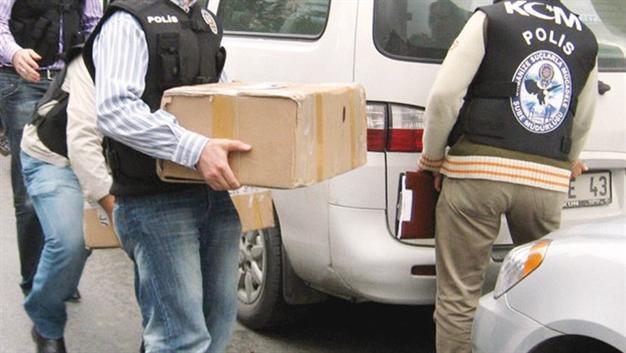Top court of appeals concludes reasons of ‘Ergenekon’ ruling
Oya Armutçu – ANKARA

The Turkish Supreme Court of Appeals on April 23 concluded its reasoned decision for the “Ergenekon” coup plot case, which it overturned last week after ruling that the “Ergenekon Terror Organization,” the target of the allegations, did not exist at all.
In its decision, the 16th Penal Chamber of the court said the ruling was overturned over the “rightful suspicion that emerged about the objectivity of the police officers who turned out to be the same individuals in each Ergenekon operation; the prosecutors for putting down reports to the indictment without conducting interrogations; and judges for condoning the illegal evidence.”
Concerning a CD which was seized during one of the searches of a Workers’ Party office which contained a drawing of the Supreme Court of Appeals building and an explanatory document, the decision said there was a lack of investigation, as the prosecutors did not probe the allegations that the documents were faxed between the Ankara and Istanbul bureaus of daily Taraf over a week before it was even found and published in the daily, on March 24, 2008. The decision also said that if there was a public case opened against Taraf, its dossier should have been investigated.
The decision also stated a document within the same CD, which was accepted to have been prepared by an individual named Nusret Senem, contained information about suspect Ergün Poyraz attending a lunch meeting. However, despite Poyraz’s defense that he was arrested on the date that the document was created and that the document was fake, a decision was given without taking this fact into account.
The fact that denunciation letters were accepted without investigating their sources was also noted in the decision, which described them as illegal acts.
“During the investigation, some documents and information that were considered state secrets were analyzed by the prosecutor’s office instead of the court. Instead of taking opinions from related institutions for these documents, a ruling was made based on the opinions of the military prosecutor’s offices and General Staff legal consultants,” the decision said, adding it was not investigated whether these documents could still be considered secret at the time they were seized and depending on the outcome, the suspects' legal conditions were not reconsidered.
Regarding the existence of the “Ergenekon” organization, the decision said it was accepted as certain by the court, but in the ruling the hierarchical structure of the organization and the ways which intelligence between departments and cells was conducted was not disclosed, while bottom-up relations and the chain of command were not identified. The decision also added that the “concrete information” on where, when, by whom and for what reason the organization was established “was not identified.”
The decision recalled a law was changed after a case opened against former Chief of General Staff İlker Başbuğ and that this new law ruled the chief of general staff and force commanders were to be probed after the authorization of the prime minister, but this change was not applied to Başbuğ.
Meanwhile, the decision also noted the acquittal and appeal demands of convict Alparsaln Arslan, who carried out “the Council of State murder,” as his time spent in prison, the amount of the sentence, the content for an overturn decision and the fact he was convicted of other crimes would not be enough for the legal control decision.
 The Turkish Supreme Court of Appeals on April 23 concluded its reasoned decision for the “Ergenekon” coup plot case, which it overturned last week after ruling that the “Ergenekon Terror Organization,” the target of the allegations, did not exist at all.
The Turkish Supreme Court of Appeals on April 23 concluded its reasoned decision for the “Ergenekon” coup plot case, which it overturned last week after ruling that the “Ergenekon Terror Organization,” the target of the allegations, did not exist at all.